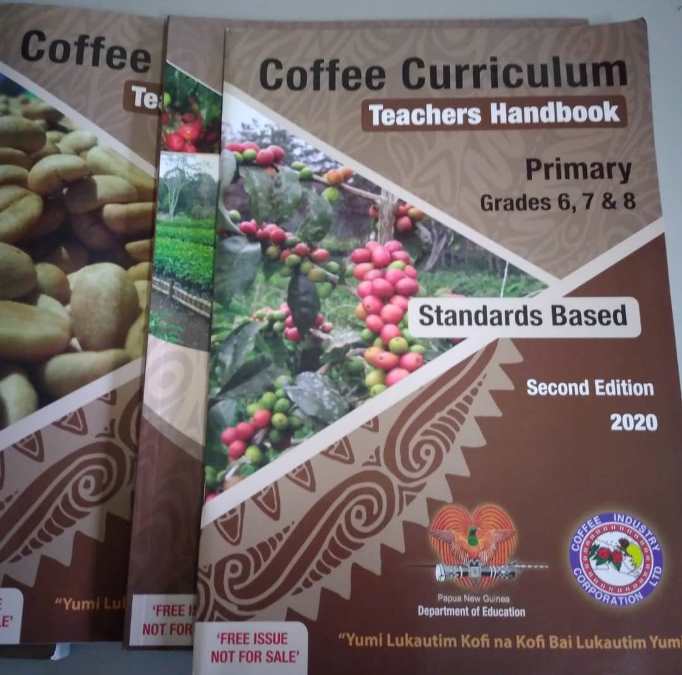STUDENTS from the upper primary education as well as in high schools will now have the opportunity to learn the special skills and training of coffee commodity as it is now being set to be implemented under the Standard Based Curriculum (SBC) to be thought in all schools throughout Papua New Guinea.
The Coffee Curriculum was launched yesterday in Port Moresby with the presence of the Education Secretary, Dr. Uke Kombra along with senior curriculum officers from the Department of Education and fellow representatives from the Coffee Industry Corporation (CIC).
The Coffee Curriculum Teaching Handbook and Resource Book for grade six, seven and eight (grade 6, 7, 8) and high school grade nine to grade twelve (grade 9, 10, 11, 12) will allow the learning and teaching of students to explore their in-depth knowledge, skills and attitudes in coffee and to further learn about coffee management, processing and marketing including coffee entrepreneurship.
Speaking to The PNG Bulletin, the leading Consultant for the Coffee Curriculum development, Dr. Arnold Parapi said that the initiative of developing the Coffee Curriculum is to allow and give an opportunity for the young population to invest in coffee commodity after completing their formal education.
“The main idea is to make sure our young people are literate and be productive members of the society as not all of them will be successful through their education journey.
“Many of them will go back to the village, and so having the right skills and knowledge will allow them to further invest to be entrepreneurs within the coffee industry,” he said.
Dr. Parapi also emphasized on the importance and chances of coffee as the leading commodity in the agricultural sector.
“Implementing the Coffee Curriculum into the Standard Based Curriculum (SBC) does not only benefit students but also allow the coffee industry to increase its production and improve the quality of coffee as a leading source of commodity for the country,” he added.
The introduction of a commodity crop based curriculum into the school system is also in line with the government’s policy for development and investment in the sustainable sectors such as agriculture where coffee is a major commodity crop.
Secretary for Education, Dr. Uke Kombra described the importance of the commodity crop based curriculum into the school system as very encouraging and fundamental for preparing students from grades 9,10,11, and 12 for them to make informed decisions and choices to help choose their career pathway accordingly.
“This support curriculum knowledge will assist school leavers to be coffee literate and productive in their localities after formal schooling.
“It is as I perceive, rewarding to have the community and industry based curriculum to make a meaningful contributions to enriching the national school curriculum for a wealthy, healthy, wise and smart Papua New Guineans in the 21st century and beyond,” Dr. Kombra said.
The implementation of the coffee curriculum will begin once the training of trainers (TOT) has been done with all Provincial Education Divisions in the country. This is to ensure teachers and trainers are well trained to take up the unit and to be taught in schools.
Dr. Parapi further explained that the Coffee Curriculum will not only be taught in formal schools but will also be available through short courses to the general population “so that we get to imply the knowledge as widely as possible and as early as possible for our youth”.
The Coffee Curriculum will be taught as a unit under the subject “Making A Living” in the upper primary education and in high schools as a unit under “Agriculture”.


Thanks Dr Parapi and the Education Secretary, its a one step forward in the right direction to the coffee industry in Papua New Guinea.
Thank you.
Comments are closed.